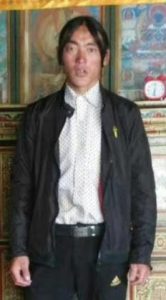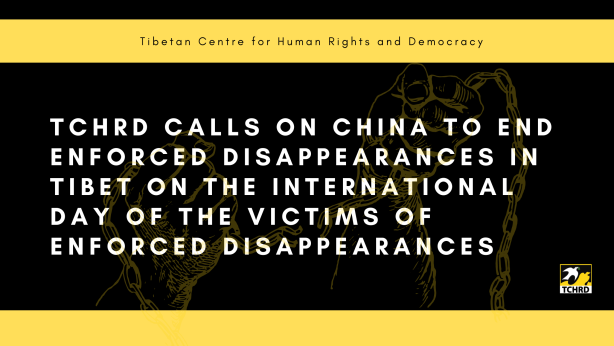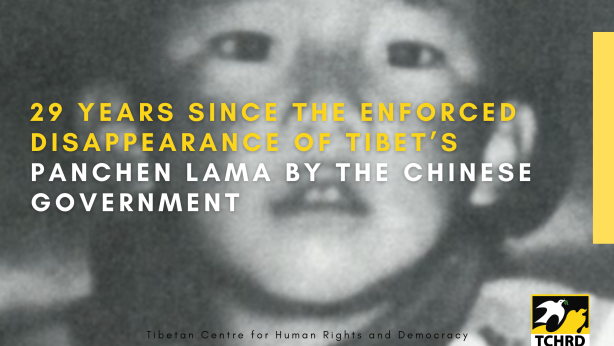China: Release Tibetans subjected to enforced disappearance for opposing coercive political indoctrination campaign
The Tibetan Centre for Human Rights and Democracy (TCHRD) urge Chinese authorities to immediately reveal the fate of two Tibetan men who went missing last year after they were detained by police for refusing to take part in coercive political re-education campaigns in Tachen Township in Nagchu (Ch: Naqu) County, Nagchu Prefecture, Tibet Autonomous Region, in the traditional Shak Ronpo area in the Tibetan province of Kham.
Lhadar and Norsang were detained last year in separate incidents when local authorities conducted mass political re-education campaign, also known as patriotic education, to ensure that the celebrations marking the 70th founding anniversary of the Chinese Party-state went unopposed.
Lhadar, 37, had been detained on 8 October 2019 and has not been seen or heard since then. Friends and relatives suspect that he had been detained under the suspicion of sharing information with outsiders. A month before his detention, Lhadar, a resident of Tsalhi village, had received a phone call from local police warning him against travelling anywhere before and during the 70th anniversary celebrations. It is a standard practice of local police to issue such warnings to restrict basic human rights of former political detainees during anniversaries and festivals deemed sensitive by the Chinese authorities.
Norsang, 36, a resident of Sabah Village, was detained towards the end of September last year along with five others. Although the five other men had been released, Norsang’s condition and whereabouts remain unknown.
In the run-up to the 70th anniversary celebrations, Chinese authorities organised numerous public performances where local Tibetans were required to hold Chinese national flags and sing ‘red songs’ in praise of the Party. Those like Norsang whose attitude were deemed threats to ‘stability’ and ‘harmony’ because they had refused to go along with the mass political reeducation campaigns were punished.
Not much is known about Norsang except that he was held at the township detention center and his family members were refused from visiting him or delivering him food and other necessities. Local police warned that more requests for visits would result in a heavier sentence for Norsang.

In the name of ‘unity of the motherland’ and ‘ethnic unity’, Chinese authorities have in recent years intensified political re-education or indoctrination campaigns to undermine and marginalise Tibetan political and cultural identity. Political indoctrination has been used for decades to enforce loyalty for the Party-state and suppress dissent among the monastic population in the past and more recently on a mass scale.
The release of the revised guidelines on patriotic education in November 2019 titled “Implementation Outlines for Patriotic Education in the New Era” represented the culmination of years of hardline policies under president Xi Jinping to realise absolute allegiance to the Party. Although the major themes of mandatory loyalty and allegiance for the Party and the “Chinese motherland”, as highlighted in the 1994 implementation outlines, are still the main focus, the revised outlines specifically “stressed the importance of lasting, in-depth and lively patriotic education among young people” and the expansion of these programs throughout the society.
A political education campaign frequently implemented in Tibet since 2016 is the ‘Four Loves and Four Stresses Mass Education Activities’ which specifically promotes Xi Jinping’s ideology of ‘socialism with Chinese characteristics in the new era’ and various domestic laws and regulations. The goal is to achieve political allegiance of the masses and crush all opposition or dissenting views against the Party-state.
TCHRD calls for an immediate end to coercive mass political indoctrination campaigns and release of all political detainees including Norsang and Lhadar who were detained for merely exercising their conscience. The enforced disappearance of Lhadar and Norsang violates various domestic and international legal standards. Chinese authorities must cease persecuting Tibetans and violating their human rights to further its political agenda of preserving regime security and colonial policies.


